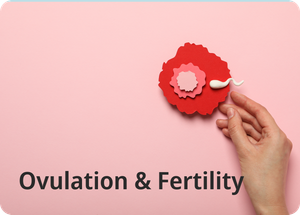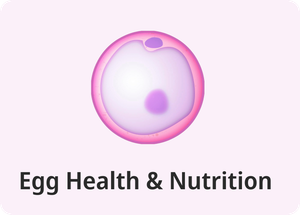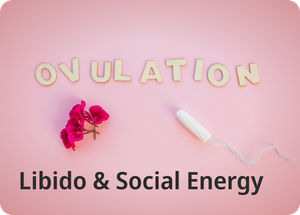“Take care of your body. It’s the only place you have to live.” – Jim Rohn
Every month, the menstrual cycle gently reminds women of their body’s natural rhythm. Along with this rhythm come changes in mood, energy, and appetite. For many, cooking or eating well during periods can feel like a challenge especially when fatigue, cramps, or cravings appear. This is where meal prep becomes a true act of self-care.
Preparing simple, balanced meals in advance can help maintain stable energy, reduce bloating, ease PMS symptoms, and support hormonal balance. With the right ingredients, your kitchen can become your best ally for a healthier, calmer menstrual experience.
The menstrual cycle depends on a delicate balance of hormones such as estrogen, progesterone, and insulin. Skipping meals or eating highly processed food can cause fluctuations in blood sugar and worsen PMS symptoms. Consistent, nutrient-dense meals help keep these hormones stable.
During menstruation, energy levels are often lower. Having pre-prepared meals saves time and ensures you still eat nourishing food even when you do not feel like cooking. NHS guidelines emphasize regular, balanced meals for maintaining energy and preventing fatigue.
When you are tired or in pain, it’s easy to reach for packaged snacks or sugary foods. Prepping healthy comfort meals ahead of time helps avoid impulsive eating and keeps nutrition on track.
Balancing these nutrients makes your meals not only filling but also functional for menstrual comfort.
Pick one or two days a week such as Sunday or Wednesday to cook and store meals. Divide food into glass containers for easy reheating.
Meals like lentil soup, khichdi, stir-fried vegetables, or chickpea curry are nutritious and quick to make. They keep well in the fridge and can be eaten over two days.
Healthy snacks like roasted seeds, boiled eggs, fruit, and yogurt can be pre-portioned. This prevents overeating and helps you refuel quickly during busy or low-energy moments.
Always keep a water bottle nearby. Herbal teas such as chamomile, ginger, and peppermint can soothe cramps and bloating.
Combine oats, milk (or almond milk), chia seeds, and fruit in a jar. Refrigerate overnight. In the morning, you’ll have a fiber-rich, hormone-friendly meal ready to go.
Add spinach, peas, or carrots for added iron and fiber. It’s light, easy to digest, and energizing.
Pre-cut fruits like banana, berries, and spinach into freezer bags. Blend with yogurt or milk when needed for a quick nutrient boost.
Mix cooked quinoa, roasted chickpeas, and sautéed vegetables. Dress with olive oil and lemon juice. Quinoa adds protein and fiber, while chickpeas offer iron and folate.
Rich in iron and magnesium, lentil soup is comforting and filling. Cook a big batch and store in containers for easy reheating.
Combine brown rice, moong dal, and vegetables for a gentle, balanced lunch that soothes digestion and provides energy.
A quick protein-packed dish. Add bell peppers, broccoli, and sesame seeds for calcium and antioxidants.
Cook a mild curry with spinach, beans, or peas. Use less oil and salt to avoid bloating.
Millet is high in magnesium and fiber, which help relieve cramps and maintain digestive comfort.
Prepare a light soup (like tomato or lentil) and pair it with a salad rich in greens and seeds. This combination is hydrating, light, and nutrient-packed.
Eggs provide high-quality protein and iron. Pairing them with leafy greens adds fiber and vitamins.
Combine pumpkin seeds, sunflower seeds, and flaxseeds. Store in a jar for an easy snack rich in magnesium and zinc.
Mix fresh fruit with plain yogurt. It supports digestion and provides calcium for muscle relaxation.
Dates restore energy quickly, and nuts supply healthy fats and magnesium. One or two dates with almonds make an ideal mid-afternoon snack.
Blend fruit with yogurt and freeze in molds. These are refreshing, easy, and help satisfy sweet cravings during PMS.
Focus on warm, iron-rich foods like soups, khichdi, and herbal teas. Avoid caffeine and fried foods.
Include fresh fruits, salads, and proteins for energy. Light meals help improve metabolism and support follicle growth.
Add zinc-rich foods (pumpkin seeds, eggs) and antioxidants (berries, citrus) to support egg health.
Focus on magnesium and vitamin B6 foods such as bananas, oats, and chickpeas to ease PMS.
If you experience severe PMS, heavy bleeding, or fatigue even with a healthy diet, it may help to consult a doctor or registered dietitian. The NHS recommends keeping a menstrual health diary to track symptoms, energy, and nutrition patterns.
Quick meal prep is not just about convenience — it’s about supporting your body’s natural rhythm. By preparing balanced meals with iron, magnesium, calcium, and omega-3s, you nourish your body, balance your hormones, and reduce stress during menstruation.
About PeriodSakhi
PeriodSakhi is your trusted companion for understanding your menstrual health. With easy-to-use tools, it helps you track your periods, ovulation, fertility, moods, and symptoms, while providing insights into your overall reproductive and hormonal health. PeriodSakhi also serves as a supportive online community where women can share experiences, find reliable information, and access expert-backed guidance on menstrual health, PCOS, pregnancy, lifestyle, and more.
Disclaimer
The views, thoughts, and opinions expressed in this article/blog are solely those of the author and do not necessarily reflect the views of PeriodSakhi. Any omissions, errors, or inaccuracies are the responsibility of the author. PeriodSakhi assumes no liability or responsibility for any content presented. Always consult a qualified medical professional for specific advice related to menstrual health, fertility, pregnancy, or related conditions.
Start the conversation
No comments yet. Start the conversation by leaving the first comment!




